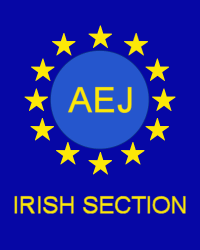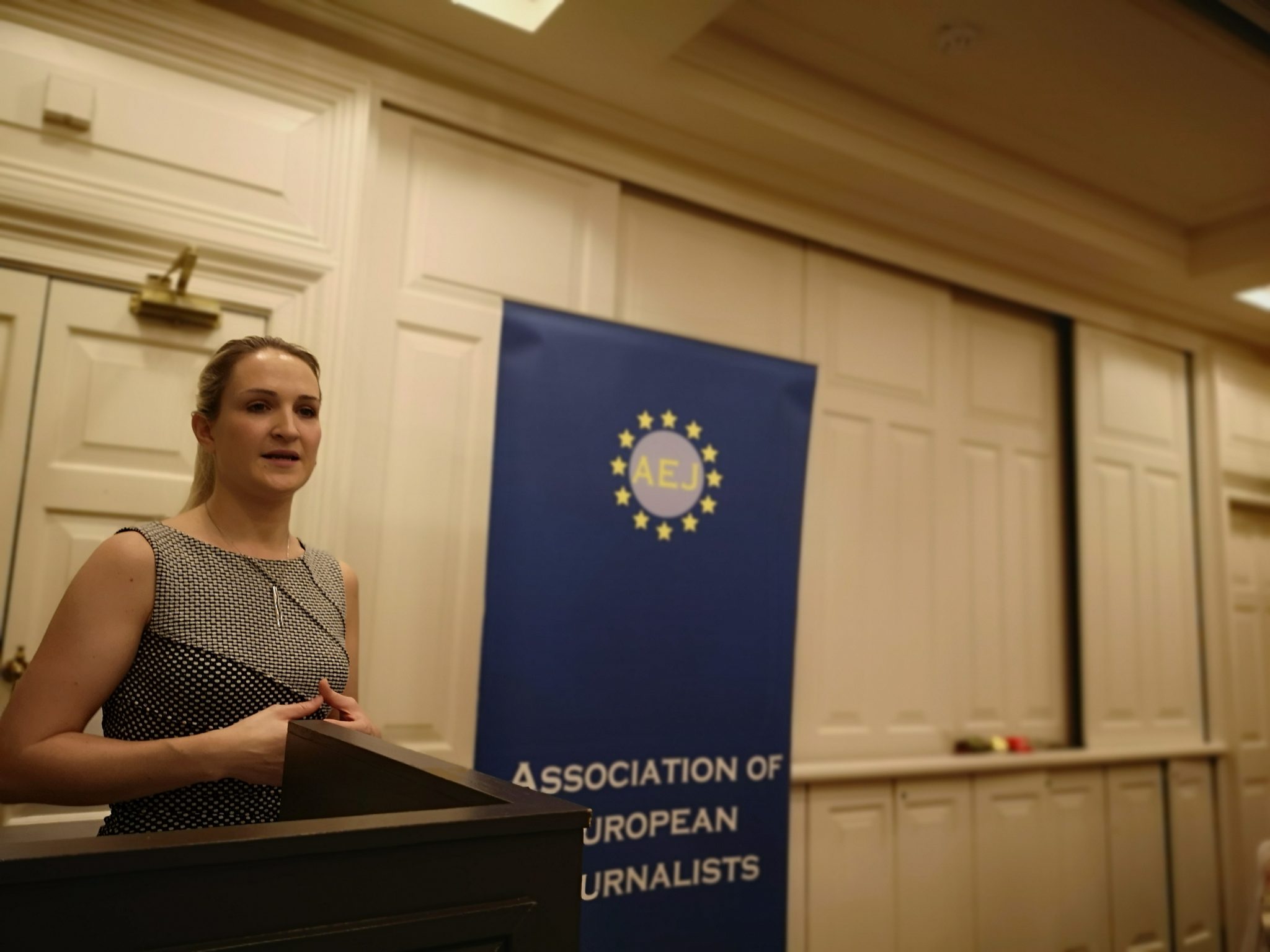Speech by the Minister for European Affairs, Helen McEntee TD, Thursday, 14th February, 2019.
It is a great pleasure to be able to join you today and to talk about where we are going with Brexit.
Brexit has underlined the importance of objective communication of the real effects and benefits stemming from membership of the European Union for our citizens. Freedom of information and freedom of the press in Europe has a key role to play in this.
Brexit is a reminder of how important and valuable the European Union is to a country like Ireland.
For our citizens, it is their freedom to live, work, study, travel, and access education anywhere in the European Union.
It also stands for cooperation on shared challenges like the environment and climate change, education and research, citizens’ and workers’ rights,immigration, and justice and security.
The EU has become the bedrock of our economic development and well being,driven by the Single Market, a foundation stone of the EU that must be protected.
It represents an extraordinary interconnection and intertwining of our economies and societies across all member states.
This is equally true for our partnership with the UK. We joined the then EEC together in 1973, and the EU has positively impacted our relationship in all areas, and contributed hugely to the Northern Ireland peace process.
It is in this context that we see the challenge of Brexit.
Understandably, everyone’s attention is on 29 March. With some six weeks to go, we are running out of road.
So, where do things stand now?
We did not ask for Brexit. This has been a British policy from the start. We deeply regret the UK’s decision to leave, but we respect the choice of the British people.
The EU has respected that choice. It engaged in two years of detailed and complicated negotiations, with real compromise on both sides, leading to the Withdrawal Agreement agreed last November. The EU has responded to the UK’s issues, throughout the negotiations, and since.
The Withdrawal Agreement covers all elements of the UK’s withdrawal from the EU. This includes the protection of UK and EU citizens’ rights currently resident in each other’s jurisdictions and those that may move during transition. It provides for the orderly winding down of the current arrangements across the broad spectrum of EU cooperation.
The transition period it establishes can play an essential role in providing assurance and certainty to businesses and the public, in the EU and the UK, as we prepare for the new relationship, post-Brexit.
Importantly, this provides the time we need to negotiate a deep and comprehensive agreement which will provide the foundations for that future relationship.
This is why the Withdrawal Agreement is of such importance.
It remains the Government’s firm view that the only way to ensure an orderly withdrawal and to fully protect the Good Friday Agreement is to see the Withdrawal Agreement ratified.
A key element of the Withdrawal Agreement is the ‘backstop.’
From the start, the Government has sought to ensure that we, in Ireland,can minimise the negative impacts of Brexit on this island, including on the Northern Ireland Peace Process and the Good Friday Agreement, for which we share responsibility with the UK.
The Protocol on Ireland and Northern Ireland, including the ‘backstop’,was negotiated on the basis of the EU and UK’s shared understanding of the need to address the unique circumstances on the island of Ireland. The backstop, a sit stands now, stems from UK Government proposals, made during the negotiations with the EU.
It acts as an insurance policy to avoid a hard border in all circumstances. Recent events in Westminster have only reinforced how important this is. This is why the backstop cannot be time limited, a backstop with a time limit is simply not a backstop.
With regards to some of the proposals being floated at the moment, I think it is useful to bear a number of things in mind.
The EU is committed to exploring and trying to agree alternative arrangements with the UK as part of the negotiations on the future relationship so that the triggering of the backstop can be avoided or to replace the backstop should it be needed. Indeed, this intention is clearly stated in the Withdrawal Agreement, and the Political Declaration on the future relationship.However, there are currently no alternative arrangements, which anyone has put forward, which achieve what both sides are determined to achieve – to avoid a hard border, and protect the Good Friday Agreement, and to protect the integrity of the EU’s Single Market and Ireland’s place in it.
This was explored endlessly in 2 years of negotiations. We have seen no alternative arrangements that meet this essential threshold. And we need a backstop or insurance mechanism based on legal certainty, not just wishful thinking.
It is important to understand the overwhelming wish across society in Northern Ireland not to return to the borders and division of the past. The backstop provides essential reassurance that this will not happen. This has been clearly expressed by cross-community groups like the Northern Ireland Chamber of Commerce, the Confederation of British Industry and the Ulster Farmers Union. We hope that those arguments are heard, however loud other voices in London sometimes are.
The Irish Government will not countenance a return to a hard border on this island. And Ireland and the EU are at one on this.
The EU has been clear that it is determined to do all it can, deal or no deal, to avoid the need for a border and to protect the peace process. As President Juncker and the Taoiseach said in their joint statement last week,“the backstop is not a bilateral issue, but a European one”.
So, where do we go from here?
The first thing to say is that, while time is short, the political process is continuing.
Ultimately, the answers lie with Westminster, as they have done since the decision to leave the EU was first taken.
The EU has, throughout this process, listened to British concerns. It will continue to do so.
EU Chief Negotiator Michel Barnier and the UK Brexit Secretary Stephen Barclay met this week to see whether a way through can be found that would gain the broad support in the UK parliament and respect the EU’s position. This follows President Juncker’s meeting last week with Prime Minister May in Brussels. They are due to meet again before the end of this month.
The Taoiseach also met with Prime Minister May, at her request, in Dublin last Friday. Of course, the political process in Westminster continues to unfold.
However, as the European Council made clear in December, the Withdrawal Agreement is not open for renegotiation. President Tusk and President Juncker reaffirmed this during the Taoiseach’s visit to Brussels last week, as well as on the EU’s continued solidarity on the backstop. EU unity and solidarity,which has been so important to this process, remains rock solid.
Ireland, with our EU partners, is committed to achieving an ambitious and comprehensive future partnership with the UK. As the EU has continuously said, the Political Declaration on the future relationship can evolve if the UK Government changes its red lines.
However, the wider uncertainty means that the Government has intensified preparations for a no deal Brexit. In this, we are again working in tandem with the European Commission and fellow Member States.
The European Commission in November and December released details of their own contingency planning. They are aware of the particular challenges Ireland faces, and EU solidarity on Ireland-specific issues has been absolute.
The Government Contingency Action Plan, published in December, gives an overview of the comprehensive, cross-Government preparations that began even before the Brexit vote.
Last month, the cabinet took key decisions on advancing a legislative package of key amendments, which will be in place ahead of the March 29 Brexit deadline.
Brexit will have negative consequences in any scenario, no mitigation measures can make up for the UK leaving the EU. However, we are determined to be as ready as we can.
Though, in uncertain times, some elements do remain certain. Ireland’s journey as a committed member of the European Union will continue, and we want to do this while maintaining the closest possible relationship with Great Britain.



